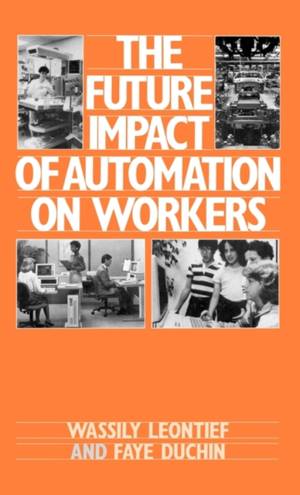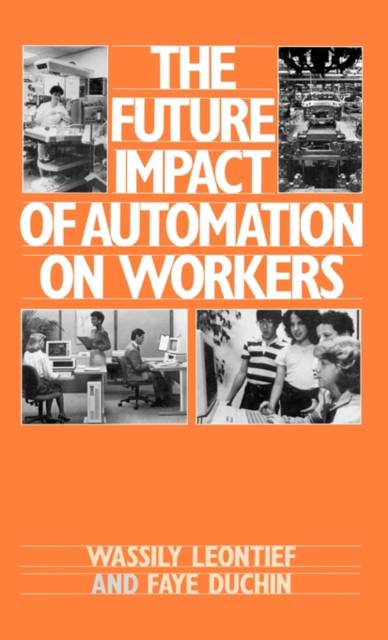
- Afhalen na 1 uur in een winkel met voorraad
- Gratis thuislevering in België vanaf € 30
- Ruim aanbod met 7 miljoen producten
- Afhalen na 1 uur in een winkel met voorraad
- Gratis thuislevering in België vanaf € 30
- Ruim aanbod met 7 miljoen producten
Zoeken
The Future Impact of Automation on Workers
Wassily W Leontief, Faye Duchin, Wassily Leontief
Hardcover | Engels
€ 305,45
+ 610 punten
Omschrijving
While the computer revolution has created hundreds of thousands of new jobs, it has threatened as many other jobs with obsolescence and has often caused the displacement of workers by computer-based machines. Here, Nobel Prize-winning economist Wassily Leontief and Faye Duchin use the input-output approach, a method that has been widely applied in examining structural economic change, to analyze the complex issues surrounding the impact of computer-driven automation on employment. Following a general discussion of the impact of automation on employment, they focus on four specific sectors within the economy--manufacturing, office work, education, and health care. The input-output approach makes it possible to draw conclusions regarding both overall employment and the prospects for individual occupations. Taking account of the increased need for workers in the production of computer-based equipment, the authors conclude that by the year 2000 automation will not cause dramatic unemployment if the economy is able to achieve a smooth transition from the old to new technologies.
Specificaties
Betrokkenen
- Auteur(s):
- Uitgeverij:
Inhoud
- Aantal bladzijden:
- 192
- Taal:
- Engels
Eigenschappen
- Productcode (EAN):
- 9780195036237
- Verschijningsdatum:
- 16/01/1986
- Uitvoering:
- Hardcover
- Formaat:
- Genaaid
- Afmetingen:
- 160 mm x 217 mm
- Gewicht:
- 240 g

Alleen bij Standaard Boekhandel
+ 610 punten op je klantenkaart van Standaard Boekhandel
Beoordelingen
We publiceren alleen reviews die voldoen aan de voorwaarden voor reviews. Bekijk onze voorwaarden voor reviews.











